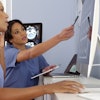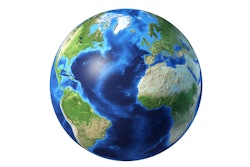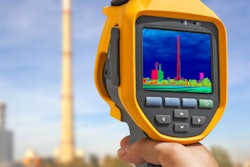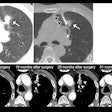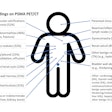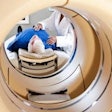
Radiologists play a key role when it comes to mitigating the effects of climate change, according to a report published on July 10 in Academic Radiology.
By conducting sustainability research, reducing medical imaging waste, and implementing quality improvement initiatives, radiologists may be at the vanguard of the healthcare enterprise's efforts to tread more lightly on the planet, wrote a group led by Beth Zigmund, MD, of the University of Vermont Medical Center in Burlington.
"Radiologists can leverage their expertise and credentials to change medical culture outside of radiology with regard to sustainable practices, as well as influence leadership to prioritize sustainability projects," the team wrote.
Climate change -- caused primarily by the use of fossil fuels -- is causing what the World Health Organization calls "the single biggest health threat facing humanity," Zigmund and colleagues noted. Healthcare has contributed to the predicament.
"There is a growing body of evidence pointing to the large contributions of healthcare systems to this crisis," they wrote. "However, despite the heightening crescendo of calls to action within the healthcare community, our contributions [to the problem] continue to escalate."
The Association of University Radiologists (AUR) has made addressing climate change a priority, the authors wrote, establishing a committee on climate change and sustainability to educate physicians, staff, and radiology leaders on the "impact of healthcare on climate change and the importance of decarbonizing the healthcare sector"; standardizing sustainability metrics; identifying knowledge gaps and barriers to change; and coordinating climate action efforts across radiology societies.
Zigmund's group outlined the effects of climate change across a variety of spheres, describing the disproportionate effect it has on marginalized people and communities, noting that "the physical risks caused by climate change and environmental degradation are the highest for those who are least able to adapt and who have contributed the least to global greenhouse gas emissions" and outlining radiology's part in the crisis.
"Numerous studies have demonstrated the environmental impacts of radiology practice, including greenhouse gas emissions through [the] intense use of energy," the authors explained.
Yet there are a variety of opportunities that radiologists can act on, according to Zigmund and colleagues. They listed the following measures:
- Conduct research into radiology's contribution to greenhouse gas emissions and medical waste.
- Engage in decarbonization efforts within medical imaging and healthcare systems.
- Develop and support sustainability initiatives.
- Develop a resident curriculum that addresses climate change.
The time for action is now, the group urged.
"The AUR calls upon the entire radiology community to become involved in these critical efforts, and we consider this focus essential to the continued recruitment of the most talented medical students into our dynamic specialty," it concluded.
Read the complete report.

